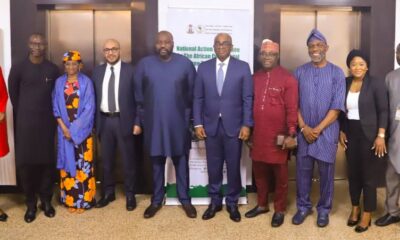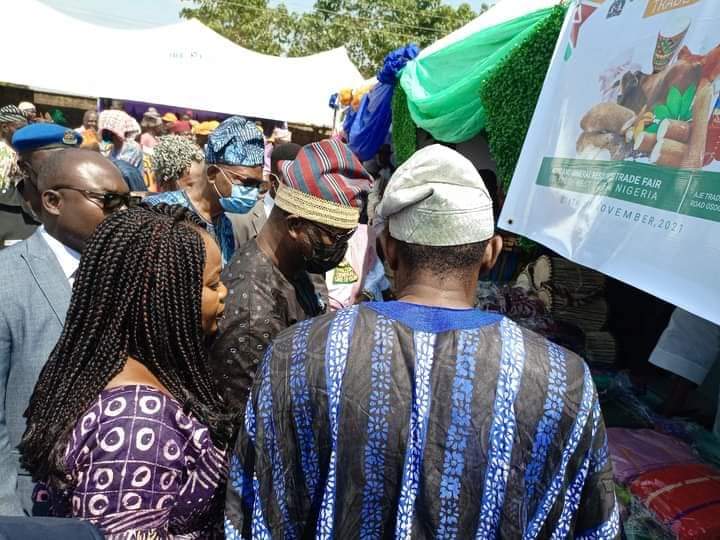News
Nigeria’s 35-year Economic Gains Wiped Out in Five Years – Sanusi
Former Governor of the Central Bank of Nigeria (CBN) and immediate past Emir of Kano, Sanusi Lamido Sanusi, has maintained that all the economic gains made by Nigeria in the last 35 years were wiped out between 2014 and 2019 when ill-advised decisions were taken by the managers of the country’s resources.
Sanusi, who is the leader of the Tijjaniyya Islamic sect in Nigeria, was a guest, along with the Catholic Bishop of Sokoto Diocese, Matthew Kukah, in an online forum organised on Thursday night by the Harvard Kennedy School Alumni Association of Nigeria.
The association is led by a former Minister of Information and Communications, Mr. Frank Nweke (Jnr).
The former Emir of Kano, who is also addressed as Khalifa Muhammadu Sanusi also said yesterday in Kaduna at a colloquium marking his 60th birthday that no one can afford to be a conformist in an abnormal society.
This Day reports that Sanusi, at the Harvard Kennedy School event, argued that incompetence has no religion, ethnicity or gender, but remains a purely personal attribute.
He stated that religion has been elevated to an unnecessary place of importance in the country, which it does not deserve, noting that the development has continued to be a part of the distraction from the real problems besetting the country.
The leader of the Tijaniyyah Sufi sect in Nigeria stressed that by the end of this year, Nigeria’s Gross Domestic Product (GDP) will be worse than it was in 1980, pointing out that spending up to 90 per cent of the country’s revenues on debt servicing was unsustainable.
“You look at the World Bank economic quality indicators and you will be shocked at what you are seeing. If we take Nigeria’s GDP per capita on a PPP (Purchasing Power Parity) basis, in 1980 it was $2,180 and by 2014, it was $3,099, which increased it by 50 per cent.
“Between 2014 and 2019, this number fell to $2,229. At this rate, by this year or next year, Nigeria’s GDP per capita on a PPP basis will be back to where it was in 1980.
“We have not moved. We wiped out in five years all the progress made in the preceding 35 years. That is the kind of conversation we should have which we are not having. And what are the key drivers of this: you’ve got rising population growth, slow GDP growth, higher rates of inflation, and devaluation of the currency,” he said.
He stated that rather than focus on religion and other inanities, Nigerians should interrogate the incumbent government on its social policies, how demographic movements can be controlled, and how to fix the issues underlying a lot of Nigeria’s challenges.
He maintained that rather than being a religious issue, the rapid increase in population has made “farmlands become houses”, while “grazing routes have become farms”, explaining that the conflict between herdsmen and farmers is over resources and not ethnicity or religion.
According to him, while the population of Nigeria has been increasing at over three per cent per annum since independence, the jostle for scarce resources has been worsened by desertification, environmental degradation, erosion, pollution, the disappearance of water resources in the Chad Basin, and the Niger Benue.
The Chancellor of the Kaduna State University opined that Nigeria was only aligning with Reverend Thomas Malthus’ economic theory which states that when the population increases with a limited supply of land, it will get to a point where diminishing marginal productivity and pestilence and war will follow.
“If you continue seeing this as Muslim versus Christian, Fulani versus chiefs or whatever, you miss the point, which is that we need to watch our grow.
Source: This Day
-

 Crime4 weeks ago
Crime4 weeks agoUnknown Gunmen Kill Babcock Law Professor, Abduct Two Others In Ogun
-

 News3 weeks ago
News3 weeks agoFracas At Osun Workers Day Rally As Two Factions Of NULGE Clash
-
 News4 weeks ago
News4 weeks agoGov. Adeleke Approves Dissolution of CDC Excos At All Levels of Govt
-

 News3 weeks ago
News3 weeks agoTwo die in Osun Road Accident
-

 News3 weeks ago
News3 weeks agoNERC Approves N81,975, N143,836 For Meters
-
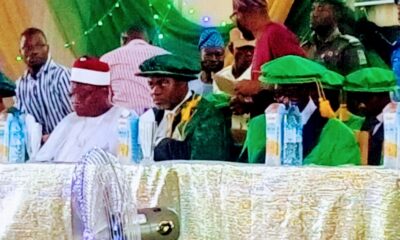
 News2 weeks ago
News2 weeks agoSpecialised Medical Universities Must Bridge Performance Gaps in Healthcare Delivery – Emeritus Professor
-
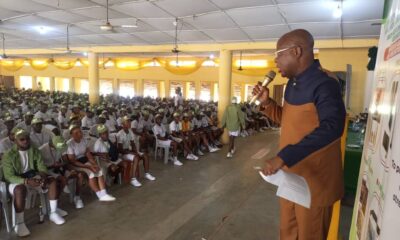
 Crime4 weeks ago
Crime4 weeks agoReport Cases of Illegal Firearms, Weapons – Centre Charges Corps Members
-
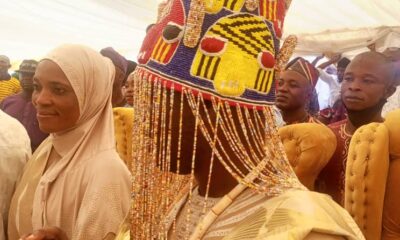
 News2 weeks ago
News2 weeks agoEko-Ende ‘ll Witness Maximum Potentials’ Utilisation During My Reign – New Elende, Oba Adekunle





